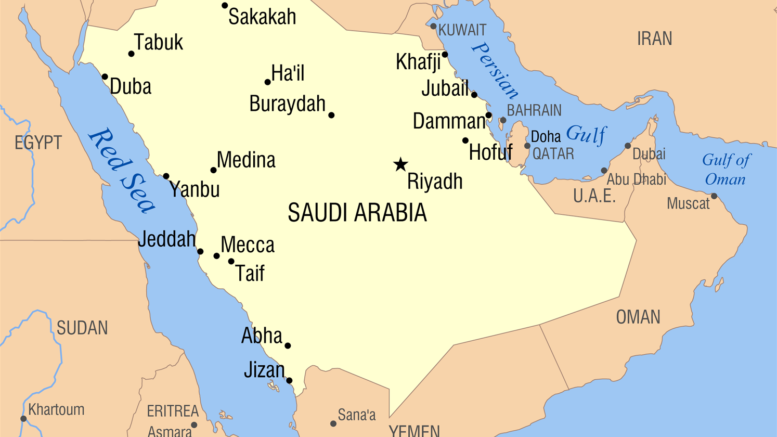A brief look around the world will show anybody who cares to look that countries that are run along Islamic lines are often places where concepts such as freedom and justice are notable by their absence. Even the most ‘moderate’ of Islamic countries, even if populated in the main by those who are not extremists are not places where many Westerners would choose to live. Although the degrees of oppression differ from Islamic nation to Islamic nation, Egypt or Morocco for example are not as bad as Pakistan or Afghanistan, what appears to be consistent is the existence of some level of oppressive and coercive religious control. When we look at what goes on in Islamic countries it is like looking at the more bloody parts of our own history with people being killed for asking awkward religious questions or for calling for religious reform. We used to kill people for being Protestant or Jewish or Roman Catholic or even for such ‘crimes’ as publishing the Bible in English, but the difference between us and the Islamic world is that we no longer kill people for these reasons. In places like Saudi Arabia, people are still killed and imprisoned for rejecting the Kingdom’s religious culture.
There is a very interesting article that has been published by a group concerned with human rights in Saudi Arabia named the Centre for Democracy and Human Rights in Saudi Arabia (CDHRSA). The article outlines just a few of the oppressions that Saudis who oppose the government or even those who want religious reform have to face. The article (h/t ROP), is a fascinating insight into the current situation in Saudi Arabia and the likely challenges for the future.
The picture that the CDHRSA of Saudi Arabia is a country that has all the ingredients for social and political turmoil. The Kingdom has according to the CDHRSA, a massive number of young people with between 70 and 75% of the population being under thirty. They are ruled over by a combination of an autocratic Royal Family and an Islamic religious establishment that is both hard line and brutal.
It appears that the young population of Saudi Arabia are chafing against the restrictions they face. They look at how they have to live and compare it unfavourably with how people live both in other nations in their region and across the world. There does not appear to be any sort of bright future for these young Saudis under the monarchical and religious tyranny of the nation. For the young and questioning of Saudi Arabia they face the prospect of either going up against the ongoing oppressions at home or taking the huge step of trying to escape from the Kingdom. Either cause of action is fraught with danger and heartbreak.
I have excerpted a short but illustrative section from the quite extensive CDHRSA article to give some flavour of it but I would strongly advise readers of this blog to go to the CDHRSA site and read the entire article.
The CDHRSA said:
As this courageous Saudi woman explains, Saudi Arabia is one of the most autocratically ruled countries in the world; thus social media has become a forum that empowers women to communicate with each other and inform the international community of the destructive man-made conditions they endure from cradle to grave. “In a heavily regulated country like Saudi Arabia where the government decides what goes on TV, what news gets covered by the press and what books go on shelves in libraries and bookstores, blogging became a much-needed platform to speak out.”
Long before Prince Mohammed and his father inherited the throne in 2015, many Saudi women have been challenging and combating extremists, misogynists, defying the driving ban, demanding an end to child marriage and human trafficking, highlighting violence against women and campaigning for the reinterpretation of the arbitrary Shariah law. They have been in the forefront of the fight against the root causes of extremism and terrorism at a high personal, political, social, economic and religious cost.
Eman Al-Nafjan (now languishing in a Saudi dungeon) is one of the early fierce promoters of women’s rights in Saudi Arabia. She gained global prominence for her bold social media analysis of Saudi women’s oppression under the punitive discriminatory Saudi/Wahhabi system. Her blog, Saudiwoman’s Weblog, became the most globally-available and valuable source of information about marginalization and repression of Saudi women. In May 2017, (one month before the ban on women’s right to drive was removed,) Crown Prince Mohammed’s ferocious security apparatus rounded up Ms. Al-Nafjan and other women and men rights advocates and threw them in Saudi prisons where they have been reportedly tortured and sexually harassed/raped.
While these courageous promoters of humane and democratic values are suffering in Saudi prisons, the Trump Administration, some media outlets and interest groups continue to exalt Prince Mohammed as a reformer and valued American ally. Astonishingly, feminist American organizations have hardly even mentioned the sufferings of their Saudi sisters.
When I read stuff like this I am filled with both admiration for the Saudis who have the temerity and the courage to challenge the Saudi status quo, but also with disgust at those such as Western Feminists (with the exception of brave individuals like Phyllis Chesler) who fail to condemn the very real misogyny of the Saudi culture. There is to a certain extent a ‘realpolitik’ excuse for the current US government and other governments to not kick up too much of a fuss over Saudi Arabia’s barbaric way it treats its people, after all the Saudis not only sell us oil, but provide a regional counterbalance against Iran. However others who do not have to worry about realpolitik considerations such as feminists, Leftists and others outside government cannot hide behind that excuse. I can see no ethical, moral or practical reason, apart from a groundless fear of being smeared as an Islamophobe, for those such as feminists and Leftists who claim to be standing for the rights of the oppressed to be silent on Saudi.
Reading this piece fills me with anger that so many people who could have spoken about the situation in Saudi at no real risk to themselves have failed to speak up for those Saudis who have spoken out and risked everything. I do not know what the long term future there is for Saudi Arabia but what I do know is that change needs to come to that benighted land. If the current monarchy wants to both hold onto a degree of power, or even of the worst happens for them, hold onto their heads, and avoid the violent implosion that has afflicted places like Lebanon and Syria, then they need to change. More than anything else the rulers of Saudi Arabia need to realise that listening mostly to religious conservatives and ignoring or worse oppressing a growing constituency of Saudis who want reform, may only lead to a terrible and destructive end result. Such an end result will not only be destructive to the Saudi governing regime, but also to the peace and security of the entire region if not the world.





